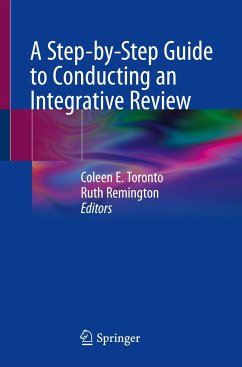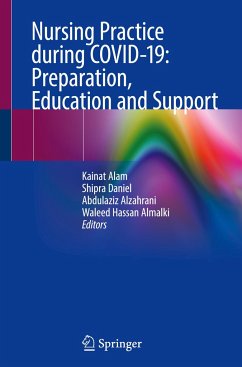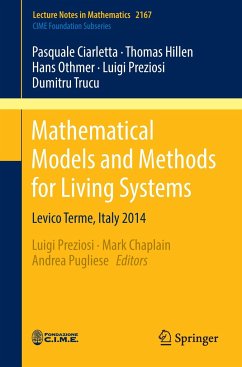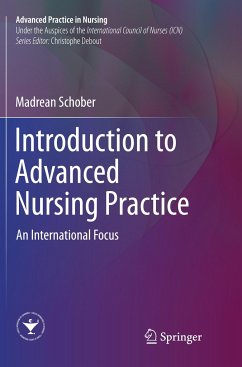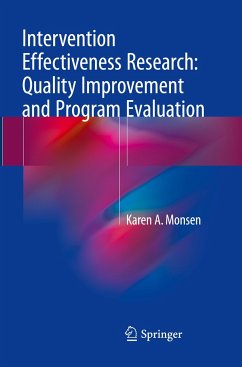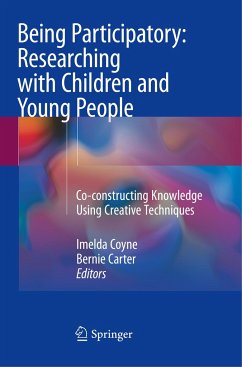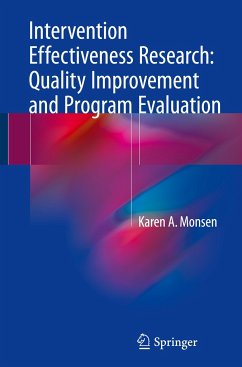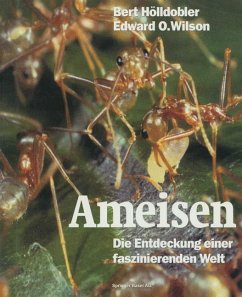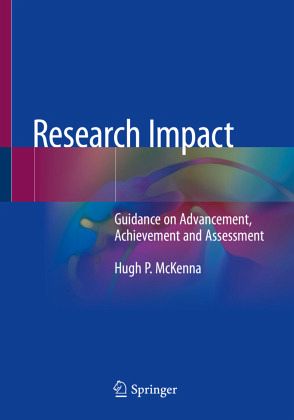
Research Impact
Guidance on Advancement, Achievement and Assessment

PAYBACK Punkte
0 °P sammeln!
Research for research sake is no longer tenable or affordable; to be valuable to society, research must have impact! This textbook takes the reader on a journey from how the UK Research Excellence Framework assesses impact to real examples of outstanding research impact case studies. Along the way, Prof. Hugh McKenna describes and explains the case for research impact, the challenges, the link between research impact and evidence informed practice, achieving impact through changing policy and engaging with the public, how researchers can make their research findings more impactful and how rese...
Research for research sake is no longer tenable or affordable; to be valuable to society, research must have impact! This textbook takes the reader on a journey from how the UK Research Excellence Framework assesses impact to real examples of outstanding research impact case studies. Along the way, Prof. Hugh McKenna describes and explains the case for research impact, the challenges, the link between research impact and evidence informed practice, achieving impact through changing policy and engaging with the public, how researchers can make their research findings more impactful and how research impact is assessment nationally and internationally
It is written in an easily accessible and understandable style, with reflective exercises amply distributed throughout its pages and helpful guides helping to engage readers and notably health professionals who are often turned off by the normal heavy research tomes. This book makes the complex simple and the wearisome fascinating. The short chapters are interesting and authoritative and can be read on a 'standalone' basis, allowing readers to 'dip in and out'.
From his experience in various countries, the author has a unique insight into what research impact is, how it is assessed and how and where research findings can have the most benefit. The stimulus for this book has been the excellent feedback that the author has received from health professionals, students and fellow researchers. There is always a risk that good knowledge and experience do not transfer well into a good textbook. In Research Impact: Guidance on Advancement, Achievement and Assessment, nothing has been lost in the transition.
The book will be of great interest to many health researchers from nursing to midwifery, pharmacy, medicine or any allied health professional, but also to any research manager in all professions who want their research to bring positive change to society, culture, the economy, health and quality of life. It will be of particular interest to those who want to understand the difference between research impacts that are weak and those that are outstanding and how such assessments are made.
It is written in an easily accessible and understandable style, with reflective exercises amply distributed throughout its pages and helpful guides helping to engage readers and notably health professionals who are often turned off by the normal heavy research tomes. This book makes the complex simple and the wearisome fascinating. The short chapters are interesting and authoritative and can be read on a 'standalone' basis, allowing readers to 'dip in and out'.
From his experience in various countries, the author has a unique insight into what research impact is, how it is assessed and how and where research findings can have the most benefit. The stimulus for this book has been the excellent feedback that the author has received from health professionals, students and fellow researchers. There is always a risk that good knowledge and experience do not transfer well into a good textbook. In Research Impact: Guidance on Advancement, Achievement and Assessment, nothing has been lost in the transition.
The book will be of great interest to many health researchers from nursing to midwifery, pharmacy, medicine or any allied health professional, but also to any research manager in all professions who want their research to bring positive change to society, culture, the economy, health and quality of life. It will be of particular interest to those who want to understand the difference between research impacts that are weak and those that are outstanding and how such assessments are made.



